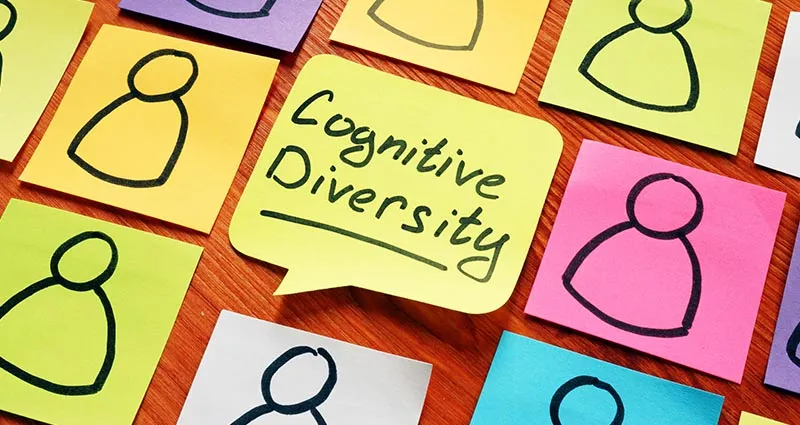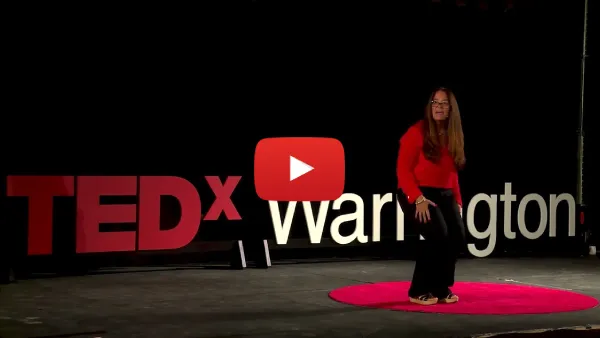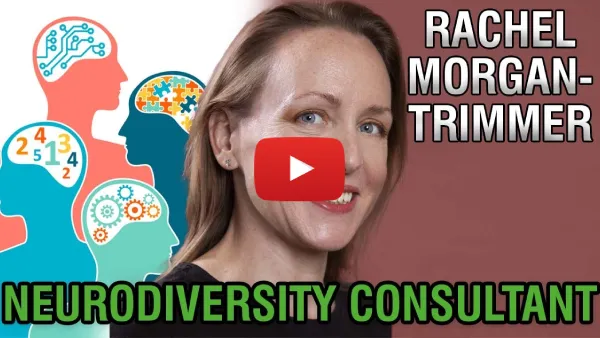How-To Guide: Embracing Cognitive Diversity In The Workplace

Despite the common phrase urging “great minds think alike”, many business professionals today believe that great minds think differently. Cognitive diversity is quickly becoming a hot topic on the speaking circuit, as more corporate leaders than ever are valuing the differences within their teams. Gone are the days of “cookie-cutter” thinking; now, companies must cultivate cognitive diversity with the help of a neurodiversity speaker.

In our latest guide, you will learn the key facts about cognitive diversity and how to promote inclusive thinking in your workplace.
Contents:
Know the Facts
Read our quick-fire FAQs on cognitive diversity below, to get up to speed with this vital topic:
What is cognitive diversity?
Cognitive Diversity Definition: Otherwise known as “neurodiversity”, the term defines the wide range of viewpoints, ideas and approaches that people bring to the workplace.
Shaped by our experiences and background, like our culture, gender and sexual identity, diversity of thought leads to innovative perspectives and problem-solving.
Source: HR Technologist
What is the Cognitive Diversity Hypothesis?
The Cultural Diversity Hypothesis credits different perspectives to our cultural differences. It also proposes the value of cognitive diversity in the workplace, as different ideas and viewpoints drive creativity, improve interpersonal relationships, and allow innovation to flourish.
Since the hypothesis was coined, researchers have continued to unearth the many benefits of diverse thinking.
How does diversity affect cognition?
From our cultural background to mental conditions like depression and autism, our differences shape how we think and behave.
In turn, cognitive diversity determines our strengths, perspectives, and the accommodations we each require for optimum performance.
What is an example of cognitive diversity?
Common examples that drive cognitive diversity include:
- Developmental Disabilities
- Mental Health Illnesses
- Race & Culture
- Nationality
- Gender Identity & Sex
- Sexual Identity
- Personal Experiences
- Education & Class
As per the nature of cognitive diversity, any experience or identity that separates us drives diversity of thought.
Though no two people live identical lives, seeking out those who have significantly opposing experiences increases awareness and understanding.
How can a lack of cognitive diversity impact a business?
When every employee looks, thinks, and acts the same, a business becomes an echo chamber of similar ideas. This limits creativity and innovation, therefore decreasing the potential for financial growth.
Consumers are by nature diverse, so an equally diverse team is required to understand a target audience’s needs.
Promoting Diversity of Thought in the Workplace
Now you know what cognitive diversity is, discover how to promote different perspectives and ideas in your workplace:
Utilise Accessible Technologies
There are several services and software that allow for contributions from all styles of thinkers. Whether people are visual learners or prefer to write notes down, by catering to each employee’s cognitive differences your business will unlock untapped innovation.
Interactive whiteboards, audio recordings of discussions and augmented intelligence are all valuable options for diverse contributions. Ultimately, the best way to discover how your employees like to learn is to ask!
Create a Judgement-Free Environment
For employees to share new ideas, they need to feel comfortable and confident. In a judgmental environment, employees may feel too embarrassed or nervous to share their ideas, preventing creative contributions.
A business must cultivate a judgement-free environment by welcoming all ideas, whether they are utilised or not. Celebrating the act of sharing ideas rather than the outcome leads to increased participation.
Educate Your Team
Meaningful change starts with education and awareness. By educating your employees about the strengths of their differences, you will cultivate a workplace that values cognitive diversity.
Guided workshops and speaking engagements can identify your team’s diverse personality traits to encourage stronger interpersonal connections. Neurodiversity speakers are regularly booked to define diversity and communicate the benefits of different perspectives.
Book a cognitive diversity speaker, like ADHD/autism champion Ellie Middleton or neurodiversity consultant Rachel Morgan Trimmer, to train your employees.

Celebrate Differences Within Your Company
Educating your employees is only one half the battle, you must also encourage staff to celebrate each other’s differences.
For example, if an employee needs guidance on data analysis, and knows their colleague is numerically driven, they can ask for help and complete their task.
Cognitive diversity means acknowledging our unique strengths and weaknesses and then leaning on one another to fill the gaps in our understanding. By celebrating our differences, we can learn from each other and grow as professionals.
Recognise Awareness Events
Awareness days are important opportunities to celebrate cognitive diversity and identify the improvements yet to be made in your business.
During these events, hire a speaker to discuss the complex topic and enlighten your employees from an external perspective.
Awareness Days:
- Neurodiversity Celebration Week – 14th to 20th March
- World Autism Awareness Day – 2nd April
- Mental Health Awareness Month – 1st to 31st May
- National Diversity Day – 1st Friday in October
- National Inclusion Week – 27th September to 3rd October
Book Diversity & Inclusion Speakers
To book a cognitive diversity and inclusion speaker for your corporate event, function, or conference, contact The Motivational Speakers Agency via our online contact form, or call a booking agent directly on 0207 0787 876.







